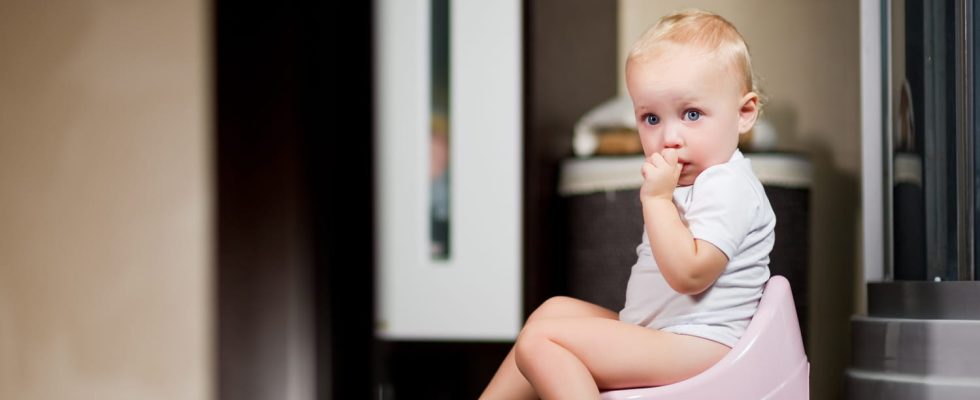Diarrhea is a common symptom in babies and children. Adequate nutrition helps to avoid the risk of dehydration. What to do ?
The diarrhea is more common in infants and young children. The main risk is dehydration, which is why it is essential to make the baby drink and to choose a diet that will rehydrate him. What are the symptoms diarrhea in babies? What to do and what food give him ? when to worry diarrhea in the baby?
Definition: what is diarrhea in babies?
Diarrhea is a symptom: it is characterized by increased stool frequency (greater than or equal to 3 per day) whose consistency can be changed (soft or liquid). Although it affects all ages of life, diarrhea is more common in infants and young children
What causes diarrhea in babies?
Generally diarrhea is the consequence of an inflammation of the intestine and the stomach: the gastroenteritis. “It is often of viral origin (rotavirus) but can also be bacterial Or parasitic. Viral gastroenteritis is very contagious, transmission is by direct contact (vomiting, stools) or indirect (hands, surfaces and contaminated objects)”, details Dr. Fabienne Kochert, pediatrician in Orléans and president of the French Association of Ambulatory Pediatrics. Diarrhea may also accompany viral infection intercurrent. It can also be a flora imbalance for example following a taking antibiotics. More rarely, a disease of the digestive tract may be involved.
What are the symptoms of diarrhea in babies?
Diarrhea is manifested by abnormally frequent and very often liquid stools. It usually lasts less than 7 days. In some cases, they may even contain mucus, undigested food and traces of blood.
In case of gastroenteritis, it is essential to prevent dehydration by doing enough drink his baby :
- for a breastfed babywe will propose close feedings ;
- the contribution of a oral rehydration solution to compensate for digestive losses of electrolytes is recommended, especially if there is associated vomiting. This solution should be given in small amounts (30 -60 ml) and often (every hour).
- Of paracetamol can be given if the child is febrile.
Drugs not recommended : medication intestinal antiseptics is not recommended in children because they are of no interest but can be potentially toxic. Likewise, drugs based on Loperamide® are prohibited in children. And non-steroidal anti-inflammatory drugs are contraindicated in case of dehydration, in accordance with the recommendations of the Francophone Group of Hepatology-Gastroenterology and Pediatric Nutrition.
What foods should be given to the baby when he has diarrhoea?
On the food side: in addition to milk, we can offer small pots of potatoes and carrots (especially no green vegetables) and apples, apple-quinces or bananas for dessert.
When to worry about diarrhea in babies?
Consult your pediatrician or general practitioner if your child is in poor general condition, if he is not drinking and/or vomiting with significant diarrhoea, if the fever exceeds 38.5 degrees, if you find him pale, weak, unresponsive. “The main complication of diarrhea is dehydration which can occur all the more quickly as the child is younger and the diarrhea is of infectious origin”, says Dr. Fabienne Kochert.
Most of the time no additional examination is useful in case of diarrhea in children. A bacteriological and/or parasitological analysis of the stools may nevertheless be requested in the event of:
- enteroinvasive diarrhea (dysenteric syndrome)
- diarrhea and sepsis
- diarrhea returning from overseas countries
- collective food infection
- diarrhea in the entourage of a patient with proven shigellosis.
The prevention of infectious diarrhea depends above all on rigorous hygiene : washing of hands, food, disinfection of surfaces and toys in the event of epidemics. “A vaccine is available to prevent rotavirus gastroenteritis: talk to your doctor” concludes the pediatrician.
Thanks to Dr. Fabienne Kochert, pediatrician in Orléans and president of the French Association of Ambulatory Pediatrics.
